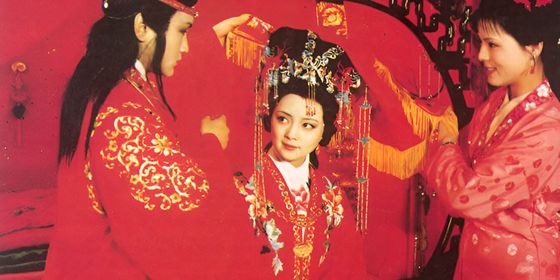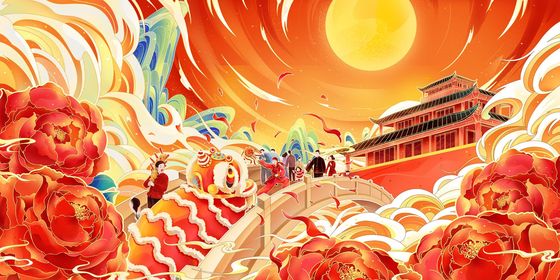How Han Han’s 1988 fails to deliver
Anyone who has been lumbered with the moniker “Spokesperson for a Generation” has quickly found it a millstone around their neck. Bob Dylan despised it; for Kurt Cobain, the weight of expectation contributed to his suicide; and Douglas Coupland was asking for trouble with his books riffing on the nature of Generation X and Generation A. But for Chinese literary star Han Han (韩寒), it never seemed a problem. From his successful debut—Triple Door (2000), which was the best-selling novel in China in 20 years—Han arrived as a celebrity, aged just 17. In many ways the high school dropout remained the eternal teenager. Now in his mid-30s, he still looks like the frontman of a Korean boy band.
In his early years, Han’s stock rose fast; by 2008 he was pretty much the most read blogger in the world, and in 2010 Time magazine named him one of the world’s 100 most influential people. Perhaps unhelpfully, even comically, he was compared to Lu Xun, probably China’s most prominent 20th century writer and certainly one of its most scathing and satirical. Han’s achievements weren’t bad going for a kid. He then, naturally, found time to indulge in a range of behaviors most angst-ridden teenagers love or dream of: a car-racing career, dabbling in film and music, and literally giving authority figures the middle finger.
Throughout his writing career, he struck a rebel’s pose and found ample opportunity to cover a range of hot-button issues, the type that you really ought to steer clear of in China. Yet he never got into any real trouble: no government condemnation, no “invitation to drink tea”, no show trials. In fact, other than a few blog posts being taken down and the failed venture of his literary journal, Party, his career and life seemed one of cloudless ascent. Indeed, this is the biggest gripe from his detractors. They seem to think that because he has not been at least sent to prison, his work must lack value, or even worse, that at some level he must be a government stooge. It seems an unfair criticism that any discussion of improving society is not of value unless it is of the revolutionary variety that leaves you hanged, drawn, and quartered.
Instead, Han has engaged in what some critics have called “edge-balling”, a term taken from ping-pong that means to hit the ball to the edges of the table but keep it in play. It seems a reasonable enough line for Han to take and does not come without its own risks, as the lines of what is and is not acceptable in Chinese public discourse are notoriously nebulous.
His most recent tome, 1988: I Want to Talk with the World, is not an edge-baller and is devoid of any direct political content. Instead it is a road trip— 1988 refers to the year of the narrator’s car—musing on loss, memory, and that old chestnut: the meaning of life. These are big themes and Han’s novel falls short of saying anything particularly substantial about them, yet avoids becoming an absolutely terrible book. The tone smacks of a talented adolescent straining to find meaning in the world and struggling to come up with anything more than a confused stream of very heartfelt feelings, though Han can certainly be forgiven for that. Speaking of the book in a New Yorker profile, he says, “In previous books, I wanted my readers to love every single page, to laugh at the jokes, to be impressed with every detail. I’ve done enough of that. I’m starting to write real fiction.” Interest, humor, and impressing with every detail seem odd features to dispense with. And he has succeeded all too well.
The book follows its first-person narrator as he goes a road trip across China to collect a friend from prison. On the way he picks up a pregnant prostitute whom he views with an awkward mix of pity, ambivalence, and sympathy. On the journey, the narrative is spliced with a series of flashbacks to the narrator’s youth, which form a potted life story of sorts.
Rather than focusing on the present, many pages are taken up outlining key events of our narrator’s past: a close friend that died; his marbles getting stolen by the school bully; falling off the school flagpole; falling in love at first sight in middle school; a love affair with an actress; a brief journalism career. Such events are told in a tone that shifts back and forth from sentimentality to ennui. But they never seem to have much effect on the narrative except in an obvious psychoanalytical sense; what happened in the past has an impact in how we feel and think today. Not particularly profound stuff, and the book often feels like you have chanced upon a confused young man’s diary rather than a fully formed novel. As the book’s title suggests, perhaps Han simply wants to “talk to the world”, and this effort perhaps entails a meandering therapeutic exercise. If so, we ought to wish Han well, but ask questions of his publishers.
If psychological issues are what’s being worked through here, then “women” certainly seem to be a key theme. The narrator struggles to go more than a dozen pages without either mentioning his many sexual experiences, struggles with girlfriends, or lust for a particular woman.
Early on we are told: “I’m a straight-arrow guy who’s been to lots of towns and seen plenty of hotels that provide sexual services, and I usually pass after gazing through the peephole. I’ve let a couple of them in but only because they were knockouts. My philosophy has always been, opening the door obliges me to accept the service even if what comes in is a pig.” It all smacks of mindless machismo, but hey, perhaps it is just locker-room talk on the part of the narrator.
Later he tells us: “In the meantime, I had been with many girls and been to bed with both the good and the not so good. But the relationships seemed to have become a pattern, and when I returned to that pattern, it didn’t seem to matter what role I played or whether I did a good job.” It is probably unfair to note that Han frequently gloats about his “girlfriends” in real life; it may irritate his wife, since this is fiction after all, but it gets a little tiresome.
“The Fall Of The Han” is a story from our newest issue, “Climate Change”. To read the whole piece, become a subscriber and receive the full magazine. Alternatively, you can purchase the digital version from the iTunes Store












